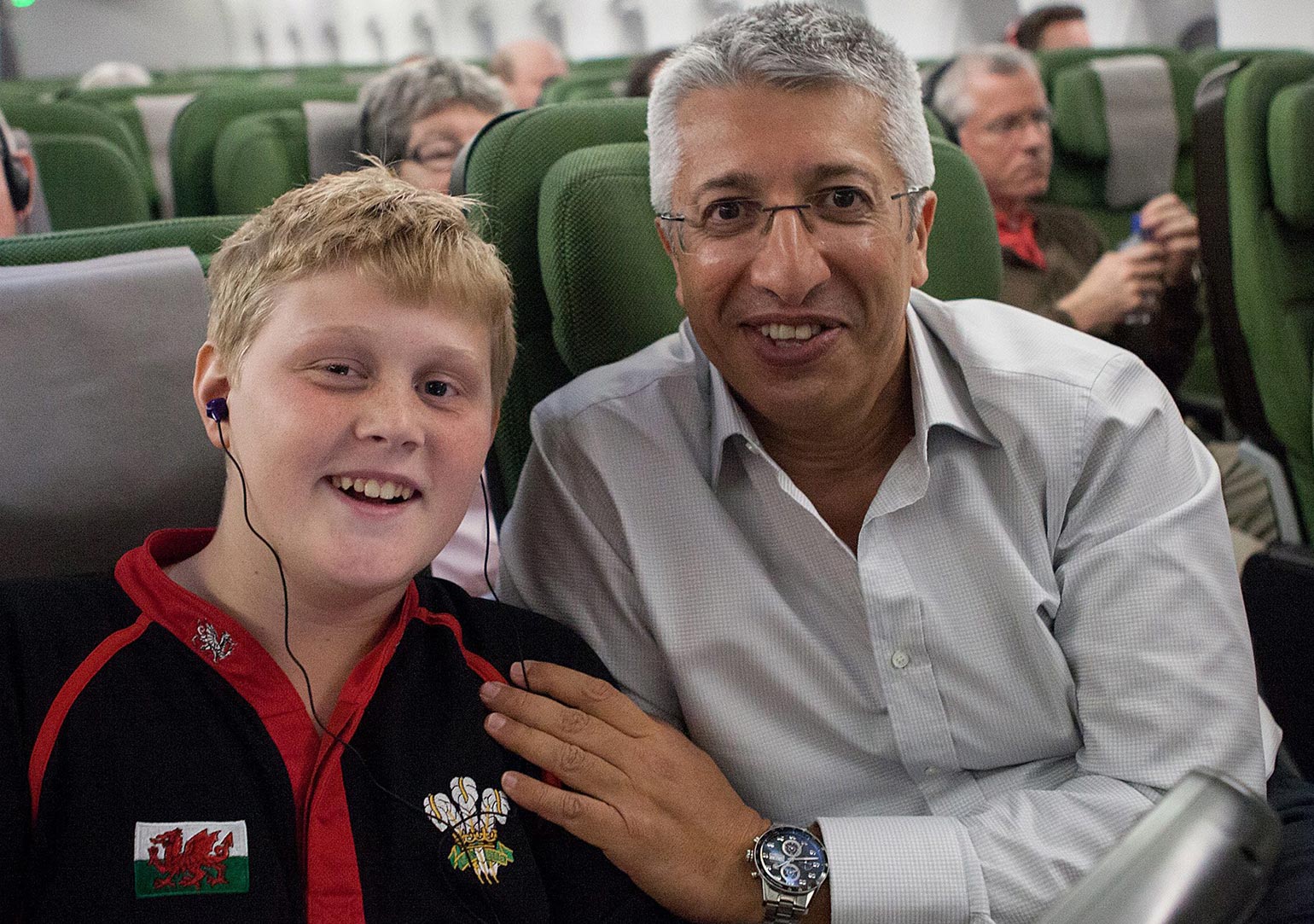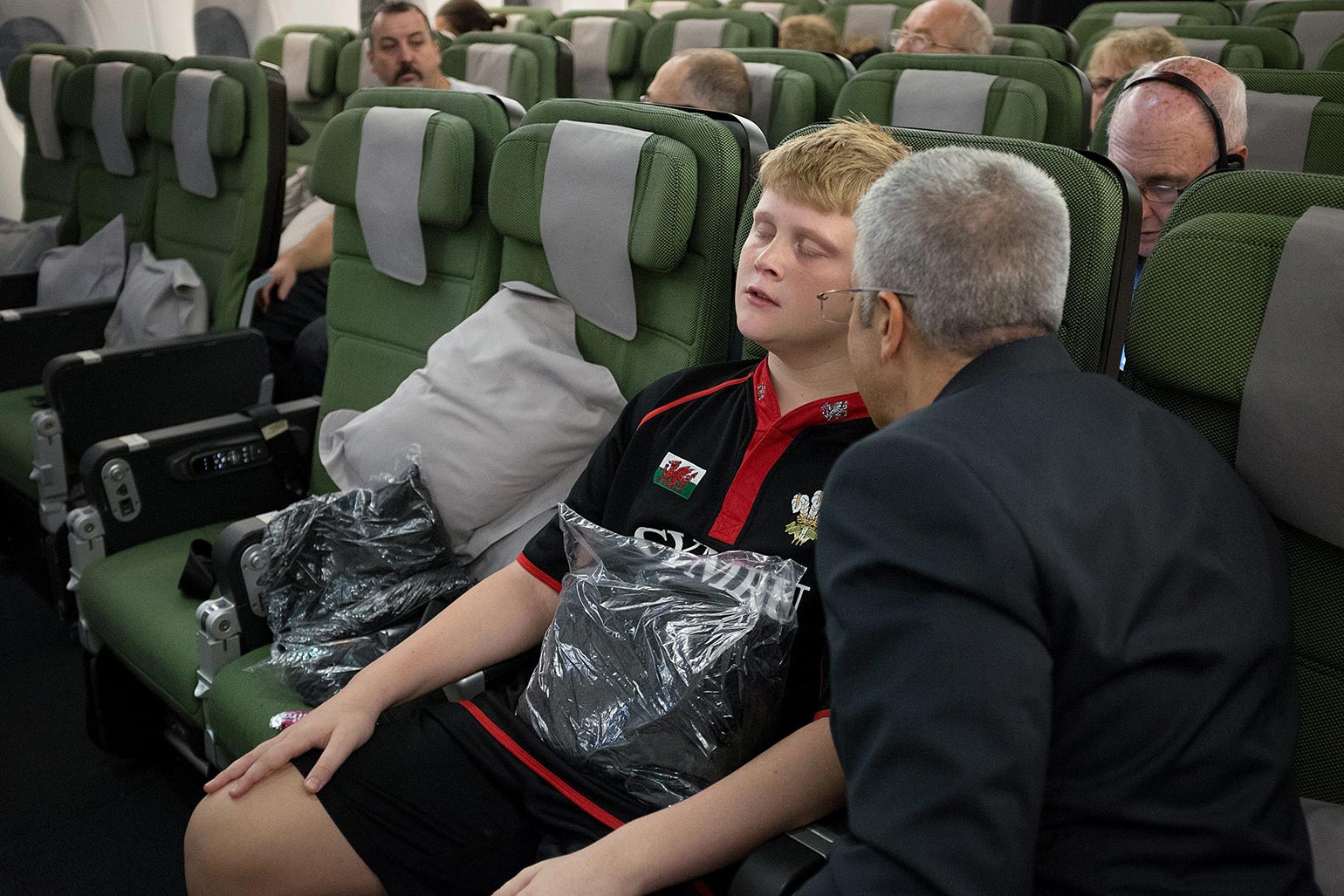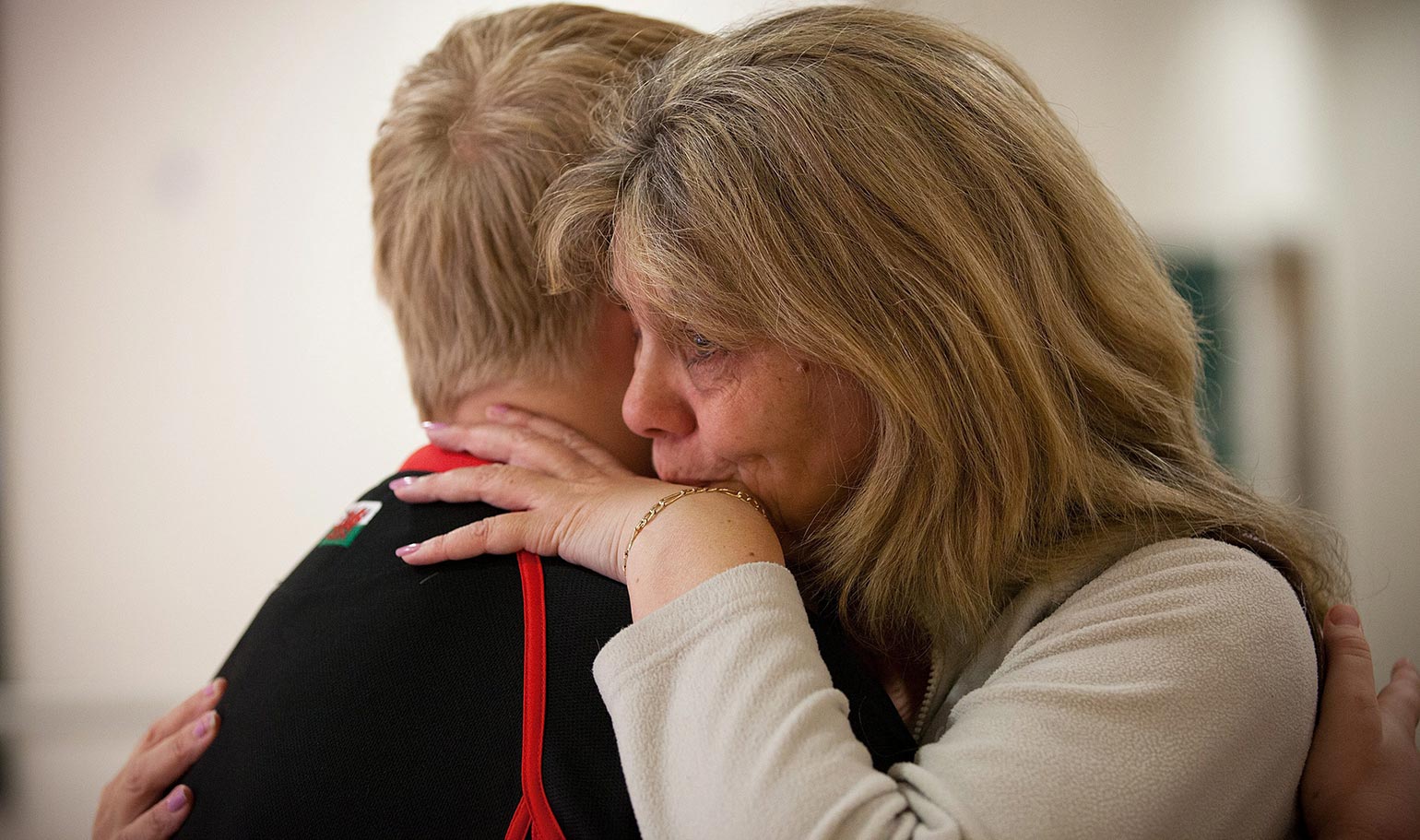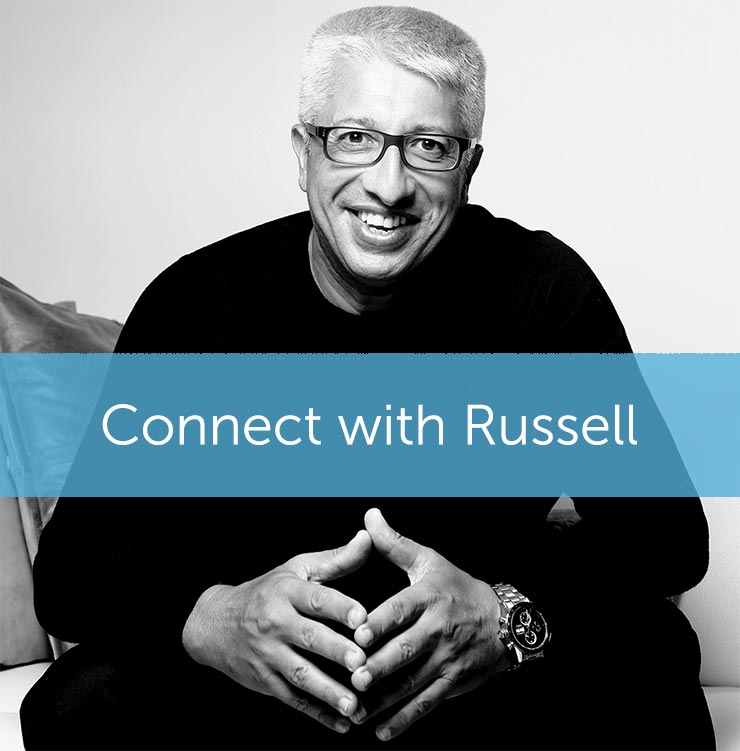The boy who was hypnotised to fly home

Joe Thompson was shivering when he stepped off the Qantas Airways’ Airbus A380 aircraft at 5.30am UK time at London’s Heathrow airport. It was cold, of course, but the shivers were due to more than the weather – the 13-year-old was trembling with excitement. “I’ve been away for 15 months,” he said, his voice catching. “It’s hard to say what I feel on getting back home… I’m just waiting to see all my friends.”
Thus ended the saga of the boy who had refused to board an aircraft and had been stranded for 15 months in Al Ain – because he suddenly developed a fear of flying.
His family had tried everything to get him home – including travelling by road and sea – but every time their plans were thwarted. They’d spent more than Dh230,000 on plane tickets and accommodation but nothing had worked. Their son simply collapsed, suffering panic attacks, and the family didn’t know what else to try – until they met Dubai-based hypnotherapist Russell Hemmings, who made it his mission to get the boy home.
“Once I got to know about Joe’s condition, I realised it wouldn’t be an easy one. But I was up for the challenge,’’ says Russell, who has a practice at Jumeirah Lakes Towers in Dubai. “I was willing to go to any lengths to help the boy and to get him home within three months.”
Until 15 months ago, Joe would hop on and off flights without thinking twice. “I used to love flying,’’ says the British schoolboy, who was a student at Al Ain English Speaking School. “In fact, I enjoyed it so much at one point I said I wanted to live on a plane.’’ Along with his family – father Tony, 62, mother Pauline, 50, and sister Chloe, 18 – Joe came to Al Ain four years ago where his father was working in a private company as a crisis management expert. Joe took to life in the UAE, playing sports, visiting malls, chatting with friends on Facebook...
The first signs of the trouble ahead
The first hint of Joe’s fear of flying began in March last year when he was preparing to fly from the UK to Abu Dhabi along with his mother after going back for a holiday.
“Everything was fine until it was time to board the flight from London, and Joe suddenly backed out saying he was unable to get on the plane,” Pauline says. “He said it was too long a journey and he would not be able to make it.”
To calm him, Pauline agreed to rebook the flight, which had a stopover in Turkey, and they returned to the UAE without any more hassles.
But later that same month, Tony, an ex aide to former British Deputy Prime Minister Lord John Prescott, had a shock when, on a flight waiting to take off from Dubai to Colombo, Sri Lanka, with 55 children to participate in a rugby tournament – Tony coaches them in his spare time – Joe began to have an anxiety attack.
“Just as the crew were preparing to close the doors, Joe jumped up from his seat and ran down the aisle screaming to be let off the plane,” he says. “He was so bad he had to be taken off the flight. I had to call Pauline to come and take him home to Al Ain, as I was leading the team and so had to go.”
Worried, Pauline took Joe to see their GP and to psychiatrists to see what was causing the attacks as Joe had previously been fine, but no one knew how to treat him.
He was diagnosed with fear of flying, also known as aerophobia and aviatophobia which is an extreme fear of being on an aircraft. It’s not restricted to planes and can include helicopters and even balloons. Sufferers can sometime have a combination of aerophobia and claustrophobia – fear of closed spaces – and even acrophobia – a fear of heights. They can pass out at the very sight of a plane, a terminal or even the departure gates.
“It was upsetting seeing Joe getting in such a state on a plane,” Tony says. “But it became a real problem after my work contract ended in June 2012 and we decided to return to England.”
The family booked tickets from Abu Dhabi to London on July 1, last year. “We’d anticipated some difficulties, but were pretty optimistic that Joe would be able to fly. We’d got rid of all our possessions in Al Ain where we’d been living for four years and except for the suitcases we were carrying had nothing of our own, having sold most of the household stuff and sent the rest back to the UK.”
Everything went according to plan until the ‘fasten seat belt’ sign came on – and Joe experienced an anxiety attack. “The moment I got into the aircraft, I started trembling and burst out into tears,” says Joe. “But once I sat down in my seat I was frozen, I couldn’t move at all. I was locked in one position and if my parents tried to move me to help me I would resist with all my might. I was deaf to all their reassurances. I just sensed danger. And when the doors were being closed, I began to experience extreme fear and got up to run out of the plane,” he mumbles.
Tony and Pauline tried their best to calm their son but it was no use. The moment Joe would be coaxed to return to his seat and the aircraft would prepare for take off, he would scramble out and head for the door.
“I don’t know what came over me,” says Joe. “I just couldn’t sit in the aircraft. I was stricken by fear, I thought I would die.”
He delayed the plane by four hours and when all attempts to calm him failed, the family was forced to disembark. The incident made local and international headlines but all Tony and Pauline cared about was helping Joe.

Desperate hunt for help
The family checked into a hotel for a few days, hoping Joe would calm down enough to get on a flight. Tony contacted doctors and psychiatrists to help him, and hoping they would be able to make it this time, booked tickets to fly out at the end of the month. Joe was even prescribed anti-anxiety medication but as soon as they checked in, his anxiety levels soared and he could not bring himself to even board the plane.
“It was the same nightmare all over again,” says Pauline. But this time Tony had to take the flight because Joe’s dog, Puppy, had already been checked in and was on the flight to the UK. The pet had to be collected at Heathrow airport. “So while Pauline, Chloe and Joe remained in Abu Dhabi I continued on the journey, collected the dog and sent him on to our friend’s home before returning to Abu Dhabi,” says Tony.
They consulted another expert, who provided more therapy for Joe. The Thompsons, hoping this time they would be able to fly out, booked their tickets for August.
“The third time we planned to travel, Joe was fine, laughing and talking until he got to the check-in where he just fell apart,’’ says Tony. “He got stomach cramps, and he crumpled to the floor sobbing. Incidentally, he never mentioned about planes crashing. The only thing he said each time he had those attacks was ‘it’s the height’.”
The paradox was that after every incident when Joe went back home – or to the hotel – he would be fine after a night’s sleep.
“I would feel exhausted after an attack. My face would be all puffed up from crying, but I’d get better soon,” says Joe. “Usually, by the time I’d reach Al Ain from the Abu Dhabi airport I’d feel all right.”
Eventually, in late July, Pauline had to go back to take up a job with a solicitor’s firm in Bristol, England, as the family’s finances were running low. She and Chloe returned to their home town of Weston-super-Mare, Somerset. Stranded in Al Ain with Joe, Tony put his crisis management skills to the fore to try to get them out of the country and back home.
“My first plan was to travel by ship from Jeddah in Saudi Arabia.’’ But by the time visas came through, through the offices of the British ambassador, the ship had already left.
“I then spent almost two months trying different ways to get Joe back to the UK by land. Automobile company Volkswagen offered to arrange a trip by road in their vehicles,” he says. But that plan had to be abandoned because of the political situation in Egypt, which they would have had to travel through en route.
“It was tough living in small rented accommodation in Al Ain without my wife and daughter,” says Tony. “Money was running out with each new attempt to get Joe out of the country and my frustration levels were rising.”
About four months later, in November, Tony planned another escape through Jeddah. “I got hold of a bus driver to take us in a 4X4 to Jeddah, from where we planned to take a ship,” he says. “I had everything planned. I had maps, charts, the works. Then the night before we left, Joe had a really bad panic attack. He just lost it, shouting, ‘I can’t leave’.”
Counting the cost
It was an unreal existence for Joe. He had quit school in Al Ain and was scheduled to join a school in Somerset. The delays meant he would lose a year. With savings dwindling, Tony and Joe were forced to live with friends in Al Ain, and then share space in a villa. “We spent about Dh230,000 during our 14-month overstay in Al Ain,” says Tony.
Meanwhile, Tony took Joe to psychiatrists and behavioural therapists in Abu Dhabi but none of them could help him. “They said there appeared to be nothing wrong with him, and prescribed some medicine to calm him down, but nothing worked,” says Tony.
As time passed and money was running out, Tony toyed with the idea of approaching the British Embassy and seek their help. But then in June, Pauline came across an article in Friday featuring Russell Hemmings and his success in dealing with anxiety attack victims. She immediately contacted his Dubai office.
Russell met Joe at the end of July, and instantly knew he had a tough challenge ahead. “When Tony and Joe came up to see me the first time, Joe had a panic attack in the car,” recalls Russell. “Tony called me to say that Joe couldn’t come up to my office, so I went down to the parking lot. Joe was very upset and anxious. He was crying and shaking. I managed to calm him down after about an hour of counselling.”
It was only after the third meeting that Joe started opening up to Russell. “I have a history of panic attacks myself 20 years ago, so I could very well relate to Joe’s situation,” he says.
“I probably wouldn’t be able to treat such cases with the same level of sympathy if I hadn’t suffered anxiety attacks myself. I was in my early 30s in Vancouver when I first got them. I was taken to hospital with all the symptoms of a heart attack. It was there I got to know it was just a panic attack. After hearing Joe’s condition, I was determined to help him. I promised I would get him out to England by October.”
Russell met Joe several times to understand what triggered his fears. “I realised that his fear of planes was now getting transferred to cars and even ski lifts, as he discovered on a trip to Ski Dubai with his friend.”
Joe had gone there to relax but half way up the slope in the ski lift, it stopped. “I just started freaking out,” recalls Joe. “I was shivering and broke out in a sweat. My arms went numb, and my head started aching. I was lucky that my friend Michael was with me. He somehow managed to calm me down. If he wasn’t with me I would have been a mess. All I could see was this big drop down, and nothing moving. It was just horrifying to imagine what could happen if we couldn’t get down.” The panic attack stopped as soon as the lift started back up after a few minutes.
Joe urgently needed Russell’s help. He underwent weekly sessions of hypnotherapy and cognitive behavioural therapy.
“Contrary to popular perception, hypnotherapy does not involve putting the patient to sleep,” says Russell. “Joe was conscious and in control at all times during the sessions while I would work on his subconscious mind, making him change the way he thought about flying and putting him in control. We have to understand that when a person suffering from anxiety sees signs of danger they actually feel they could die, have a heart attack, and lose control. They perceive an impending doom, and for them it is very real.”
Russell lists the symptoms of a panic attack: butterflies in the stomach, tension in the muscles, tingling fingers, dry throat, hyperventilation, dizziness, sleep problems, excessive anxiety, irrational fears, chronic indigestion, stage fright, compulsive behaviour, and flashbacks of traumatic events, among others. “The only cure is to accept these symptoms, not fear them,” he says.
Changes began to happen
Russell saw Joe every week for two months, trying to understand why he had anxiety attacks. “There could be a number of reasons,” says the hypnotherapist, who also has a clinic in London. “It could be because he’s away from home; or they could have been triggered by stressful events in his life, or a worrying event at school perhaps... It could also be a result of being separated from one or both of the parents at times – it could be anything.”
Though it is likely that anxiety issues may run in the family, it is not genetic, clarifies Russell. “My mother had the same problem and I, the youngest in the family who spent the most time with her, perhaps picked it up from her,” he says. “But panic attacks are not genetic, they are learnt. Joe’s mother Pauline too had anxiety issues. She suffered from claustrophobia, so it is possible that Joe ‘learnt’ it from her.”
Russell worked hard to relax Joe using hypnotherapy. “I put him in a relaxed state and when he is there I make him take a picture in his mind of the event that terrifies him,” he says. “I then try to put him in very positive situations like playing with his mates or having fun, and make him mentally replace images of the terrifying events with these positive snapshots. Anxiety and panic attacks are in some ways actually our natural defence mechanism acting in the face of impending danger, but in the case of patients such as Joe, the defence mechanisms start to act up at the wrong times and disproportionately.”
Russell taught Joe visualisation techniques so he could imagine getting on a plane and flying off and landing in England without any incident. Over 6 sessions, the hypnotherapist prepared Joe for the flight using the power of hypnotic suggestion and finally on October 6, Joe was ready to fly.
Along with his father Tony, he checked in from Dubai and boarded the 1am Qantas flight to Heathrow. Tony says, “With Russell’s help Joe managed to get on to the plane but soon after take-off he got very upset again. But Russell worked his magic again and helped him through everything.”
Joe says, “There were some scary moments before I boarded the flight because I got very depressed.” But with Russell beside him, guiding, comforting and reassuring him all the way, Joe held his nerve.
“While on the flight, I was able to calm Joe using hypnosis techniques,” says Russell. “I got him to do his visualisation exercises again, imagining him already reaching England, and meeting his mum and sister at home.”
The plane touched down at 5.30am UK time after a seven-and-a-half hour flight. The first thing Joe did when the plane arrived and the crew opened the doors was to hug the hypnotherapist. “Thank you, Russell,’’ he said, grinning broadly.
Now it is celebration time at last for the Thompson family. “I’m so happy to be home. I can’t believe how cold it is here. I am just waiting to see my grandparents!” Joe said excitedly. “And of course my friends… and my dog. I haven’t seen him for such a long time.”
Pauline was at the airport, waiting to hug Joe and Tony. Seeing her son after 15 months, she was overcome with emotion.
As for Russell, he is happy he was able to keep his word. “This case was very complex and challenging, but I said it was possible to get him home and I’m thrilled I did it.”







